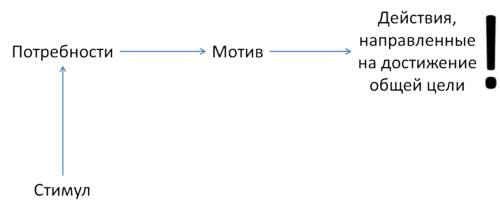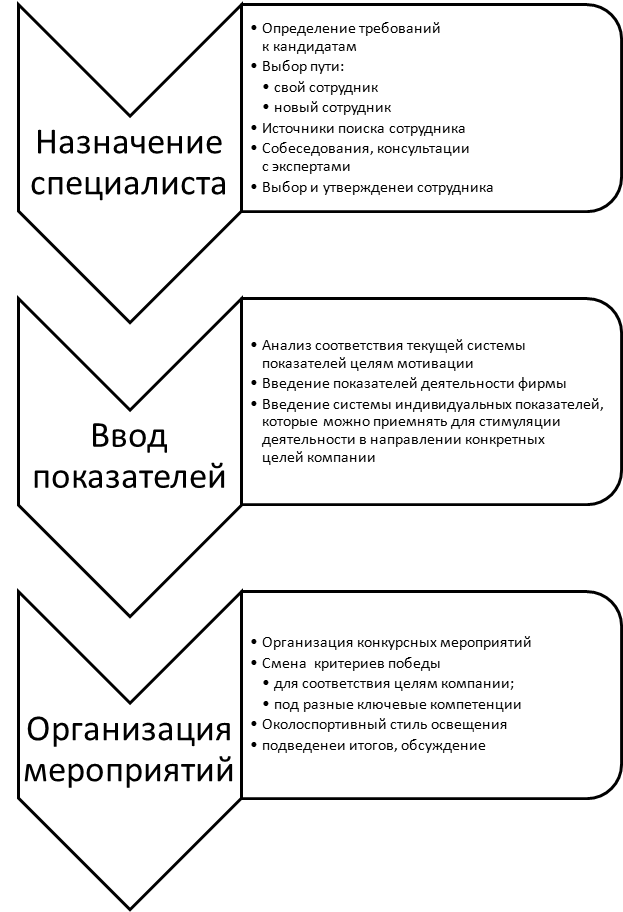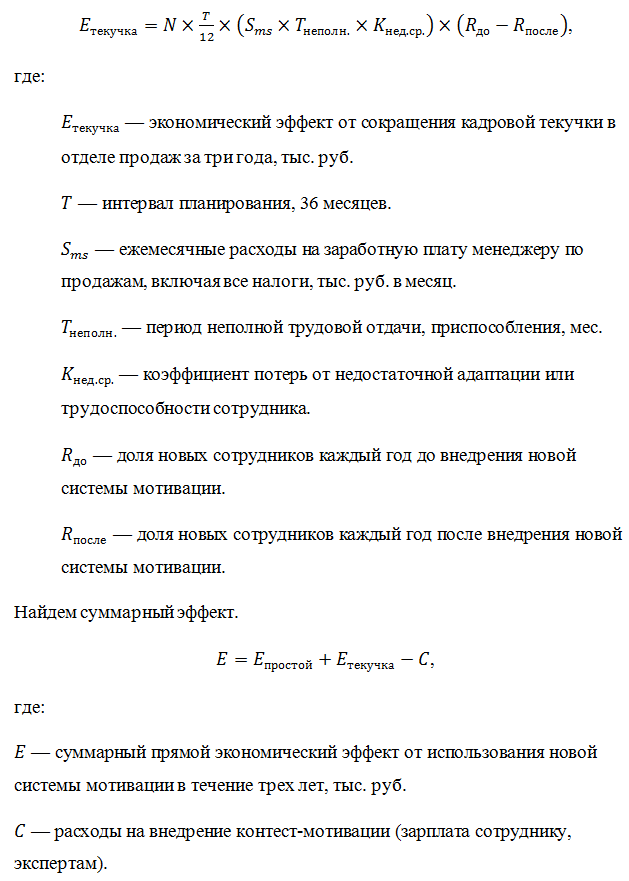Contest motivation
Introduction
Motivation is a manager's tool that allows, through the stimulation of employees' selected needs, to motivate them to act towards a common goal.

Motivation through competition, through contests, due to internal competition are very powerful, but at the same time extremely dangerous tools.
')
Next in the topic:
- general principles of contest motivation;
- what to avoid;
- step by step procedure;
- economic effect;
- examples of using;
- conclusion
Principles
Already the most social contact is caused by competition and a peculiar excitation of vital energy [...] which increases the individual productivity of individuals.The principle of imitation: science knows that the presence of a landmark motivates people. First, they imitate, then they improve what they catch, try to surpass. It is important to help people see exactly what aspect of them should be followed by others.
Karl Marx
The principle of benchmarking: depending on the vastness and diversity of departments of the enterprise, it is important to let know about the indicators of the most outstanding employees, and, if possible, to focus on the best employees of competitors.
The principle of competition: actually, the basis. Using competition, competition as motivation.
The principle of good faith: competition should be for the benefit of the organization, that is, people should strive to improve their own performance, and not reduce others. Such actions must be punished.
Handicap principle: if it is known that, due to a particular competition, conditions are not equal, it is necessary to equalize chances with the help of appropriate coefficients.
The principle of sportiness: all events must be accompanied by a certain spirit, attitude.
The principle of diversity: in contrast to the traditional premium system, competitions can be very different, initiated by both the bottom and top. This is important due to the fact that in the same type of contests the same people will win and the motivation of the losers will fall. Contests where you need to show different talents will allow everyone to win. If an employee is not able to express themselves in any direction, then does the company need him?
What to avoid
Unskillful attempts to introduce any obscure events can always lead to disaster. In this case, avoid- only material forms of encouragement;
- opacity;
- individualism;
- permissiveness in the choice of means;
- the presence of losers;
- tensions .
Step by step procedure
The introduction of contest motivation in any structural unit can be described in the following steps.
1. Definition of responsible
As you know, cadres decide everything. If you can not find the right person, it is better not to try to use the wrong one.Naturally, assigning this role to an existing company employee is preferable. However, the probability of finding an employee in the company with the appropriate competencies is low.
Competences and qualities required motivation specialist:
- sense of tact;
- writing skills;
- consistency and resistance to criticism;
- the ability to listen to the opinions of others, sensitivity;
- Knowledge in the field of management, personnel management;
- knowledge of the competence of employees for whom competitions will be arranged.
The duties of such a specialist include:
- Conducting competitive events, writing regulations, goals;
- Informing employees about the course of the competition, preferably in a "sporting" style, creating a certain atmosphere;
- Monitoring of the situation in the team, attitudes towards contests and between employees;
- Conducting events like discussing the results and inventing new contests (of course, they can not be boring and on schedule).
2. Introduction of performance indicators
Naturally, the scorecard is a separate complex issue. Meanwhile, for the successful use of contest motivation, it is necessary to implement at least a limited set of indicators and the information system accompanying them, which allow:- all employees in real time to see the performance of the enterprise;
- see the compliance of the current position with the goals;
- see their contribution to the current state of affairs and the achievement of goals;
- display the indicators for which the competition is conducted (or contests);
- show the connection of current competitions with the company's objectives (although the connection may be absent).
- revenue;
- profit;
- growth relative to the market;
- working out on a manager;
- % of employment;
- staff turnover.
3. Launch of the first competition events
It is necessary to vary the pace of change depending on the age and relaxedness of the team. The first contests can be in many ways similar to the already used motivation system (for example, for sales departments linked to revenues, it is logical to start with a competition for high revenues following a certain period). Then it is necessary to expand the list of indicators used, so that it is boring and the effect increased.Economic effect
The effect of changes associated with motivation is often difficult to calculate. Here I propose to use two indicators of the company. I apologize for the formulas with pictures. I note that it is believed that the market in which the company operates is growing. Otherwise, the effect would be considered otherwise.

Examples of using
In [1] it is described how these mechanisms allowed the US steel industry to rise in the 19th century, ahead of England.
Another example is socialist competition.
Enterprise "Format" .
Conclusion
How much is all this applicable in IT? Full Here the main thing - the desire or the need to do this, fantasy, the choice of normal indicators. After all, you can make the share of "prizes" in the salary is small and then it will be a purely motivational event (in sales, of course, most of the income is premium).
I hope this topic seemed interesting and promising in Russian society.
Used materials:
1. Scott Walter Dill, Increasing Human Efficiency in Business: A Contribution to the Psychology of Business
2. Internet
About errors, please write in a personal.
Source: https://habr.com/ru/post/285412/
All Articles